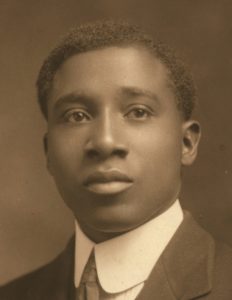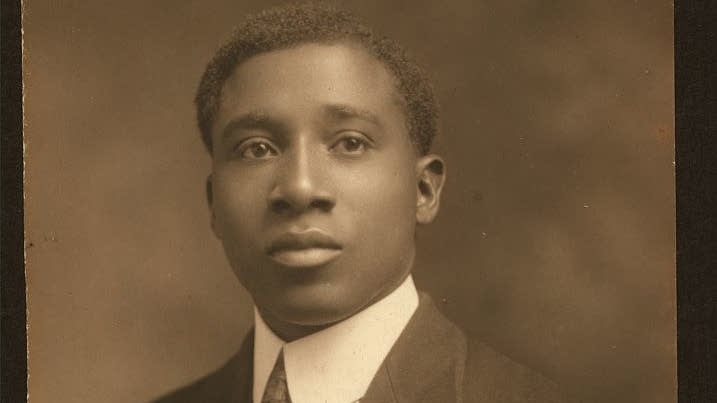Nathaniel Dett: Painting Words in Music
Words by Okara Imani
A mere thirty seconds into Nathaniel Dett’s In the Bottoms Suite, the “Night” prelude has you ambling along the road home from work after the sun’s set. There’s a rich and full darkness expressed in the rolling low chords that trudge toward you until they begin to flow upward and trill, as if greeting neighbors on the way to a well-earned shindig at the end of a long, hard day. Before you know it, it’s as if your ears follow your mind’s eye around the room teeming with Black bodies, Black voices, and Black stories, that all reverberate such bittersweet and complex tones, so as to layer context upon culture upon colloquialism in the bold polyphony of Dett’s ode to the American South’s river bottoms.

If you perceive my musings on these musical expressions as a tad bit melodramatic, allow me to step onto my soapbox and campion a music method so effective, age-old, and classic that its origins go beyond the European classical tradition, back to the world’s ancient oral traditions: text-painting! Also known as ‘word painting,’ this is a composition device used, in both lyric and instrumental works, to illustrate very specific details of content — to create the contextual framework, by which the listener more deeply engages with the work itself. Certain tones vibrate at just the right frequency to invoke joy. Strings can strike despairing discord or hum sensuously, and drums have been ‘talking’ in African countries for centuries. Composers score music for instruments in ways that mimic animals and the natural world in order to deepen the listening experience. Sadness is not just expressed in words in any old minor key, it’s etched into the briefest of anguished pauses and pulled through the longest, vibrating fermatas!
Now, I acknowledge that some themes and motifs just really ‘work,’ and one can not be faulted for implementing a well-tested chord progression or bass-walk when writing original music. I will even concede that there are sound engineers and producers in today’s industry doing an immense amount of heavy lifting to uphold musicality in the field. And we all have our favorite dance music, or the sounds we love to hear for the sake of organized sound and easy listening. Every lick of music is valid for its own sake. However, an hour’s browse through popular radio stations, or even just the “Billboard 100” seems to yield a less than vibrant depiction of the art of expression and a music language that’s almost — or perhaps somehow too universal? There is a propensity toward executing just a balanced formula in order to suit the recipe set by the status quo, the industry machine, so to speak. It doesn’t reflect lack of talent or skill so much as a willingness to prioritize money and mediocrity. I hear the industry being inundated with lyrics that stand disjointed from accompaniment, songs interchangeable following the same tried progressions because the detailed and intentional work of text painting slows down mass production and reproduction. Once you have reduced, redacted, and rebranded the universal language of music down to the barest elemental formula for capital gain, its capacity to truly resonate and reflect humanity exponentially decreases.
There is a reason music is ‘the universal language,’ just as there is a reason humans developed any language at all — to embrace and reflect the shared human experience. As I see it, the origins of music are rooted in storytelling, an expression of self and environment, a way to organize sounds and explore the why and how of the world. Our expressions could be more poignant, more resonant, more broad — increased impact on the macro scale — just from having honed in on smallest musical moments and magnifying lyrical meaning in every utterance of sound, human, or mechanism. So if you’re a writer, are showing or telling the audience, or if you’re a listener, I challenge you to go deeper and ask for more. When we have so much to explore and understand about ourselves and one another, it seems a crying shame to contribute to the greater human dialogue in such measured and stunted tones.







Leave a Reply